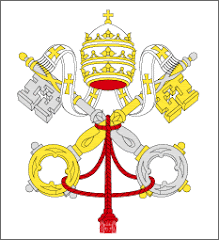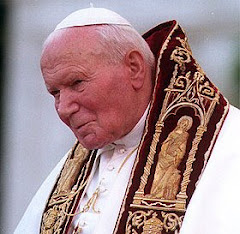The title of this piece reminds me of the “which one doesn’t fit?” question often found on IQ tests and the like. Clearly, the answer to the above would be ‘selfishness’, but why doesn’t it fit? If we recognize that selfishness is insoluble with authority and obedience, why do the terms ‘authority’ and ‘obedience’ cause such discomfort in people? I would propose that a population conditioned by an environment and culture absolutely obsessed with individualism claiming that this individualism is what makes us ‘great’ has not a chance of escaping the pitfalls that are bound to occur – pitfalls characterized by the eventual rejection of obedience as a virtue and selfishness as a vice. When this occurs, recognition of authority as a good becomes a virtue held by a small minority, those who are diagnosed as sheltered, parochial, and even simplistic by the multitude of self-made pop psychologists who have it all figured out. They just can’t seem to figure out why their own marriages are broken, their children are self-mutilating misfits, and the list could go on.
Evidence of this as the prevailing mindset of many today (although none would ever admit to it), is most clearly seen in the elementary and high school classroom, a veritable observatory of the many and varied errors the modern family has imposed upon itself with the children serving as guinea pigs for the new human cultural experiment performed by mad scientists that go by the title of ‘mother’ and ‘father’. In this experiment, a dual hypothesis is being tested: children will be better suited to reach the goal with less guidance, and they will be able to assimilate into the real world in a productive way without being conditioned to recognize the need for authority and more importantly the need to accept another’s authority.
There is an insidious movement of parents away from the role of teacher, guide, and disciplinarian and towards the role of friend. This establishes a relationship in which authority has no place, and the results of this new experiment are quite telling. Since ‘mothers’ and ‘fathers’ have decided to be simply peers to their children, there has been a corresponding rise in apathy towards those things that create a stable society – education, self-discipline, faith, and marriage. This should raise a question in our minds: Why would lack of authority on the part of parents within the home lead to such a result?
To answer such a question, we must first understand the nature of authority and, therefore, its purpose. Etymologically, ‘authority’ comes from the Latin auctor and auctoritas, meaning ‘model, teacher, and progenitor’ and ‘security, full power, and decree’, respectively. The purpose of authority is to provide a standard by which we learn and model our lives. It is meant to securely and with power guide those in submission to it into a life of goodness. Clearly authority can be abused in the most horrid of ways; nevertheless, this fact does not take away from its necessity for cultural stability. More specifically, authority in the home plays an even greater role. The role of the father, and consequently his authority, is meant to provide an image of the paternity of God to his children, thus forming the child’s notion of God and the submission due to Him by virtue of His authority. St. Paul assures us of this notion in Ephesians 3:14,15 where he writes, “For this reason I bow my knees before the Father, from whom all fatherhood in heaven and on earth is named.”
The natural consequence of such a lack of authoritative parenting, most clearly seen when they choose to be their children’s peers, is a corresponding lack of acknowledgement of God as Father. This rejection may not occur in an explicit fashion but can certainly be discerned in the wayward decisions of those who adopt such a way of life. How could a child conditioned to reject the notion of valid authority somehow innately accept the authority of God? Faith, therefore, becomes no longer part of the equation, nor is the concept of self-sacrifice, for if mom and dad have taken on the role of ‘friend’, then at what point will little Suzy or little Johnny ever experience the need to submit their will and desire to the greater good? This sets up children for nothing but failure, but not only children as individuals, but also the society of which these children will ultimately take control. With no appreciation for self-sacrifice and an overdose of selfishness, lasting and fruitful marriages become near-impossibilities, and as we are experiencing now, the breakdown of marriage translates into breakdown of the culture.
Another symptom of such rampant selfishness is the unveiling of its high-maintenance handmaiden that goes by the name of Materialism, which should be no surprise to the thinking individual. The materialist philosophy is a natural outgrowth of such an environment in that the one who rejects sacrifice for the greater good accepts only consumption for the benefit of self.
At the risk of sounding sheltered or parochial, I would gladly forgo the pleasure of being my child’s friend if it meant saving them from adopting the status of a selfish, materialistic, and faithless divorcee.
12 years ago



















No comments:
Post a Comment